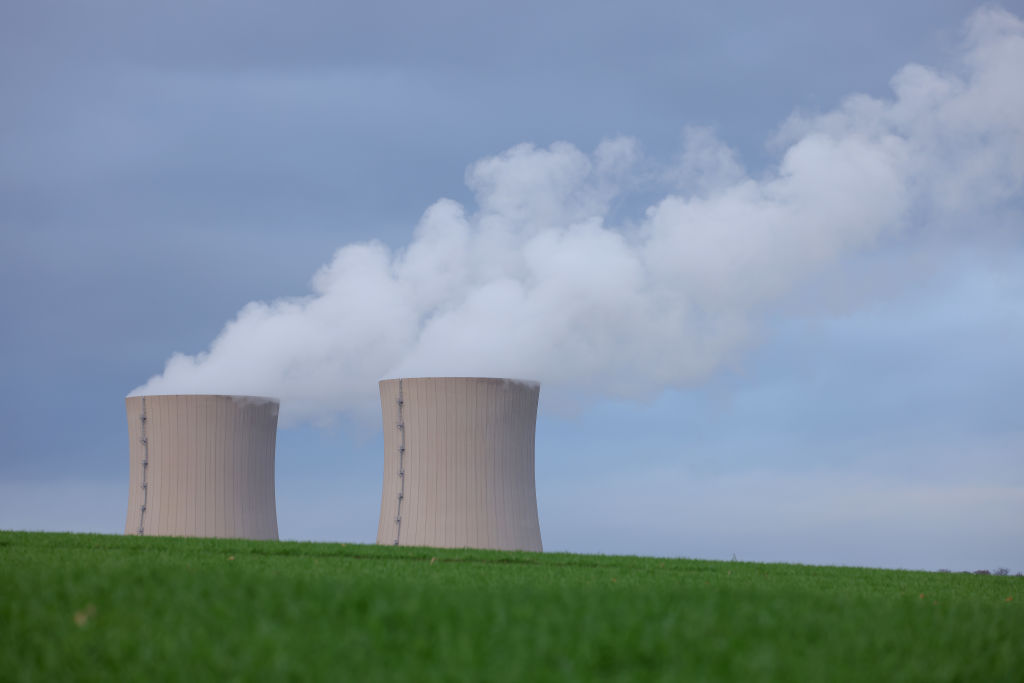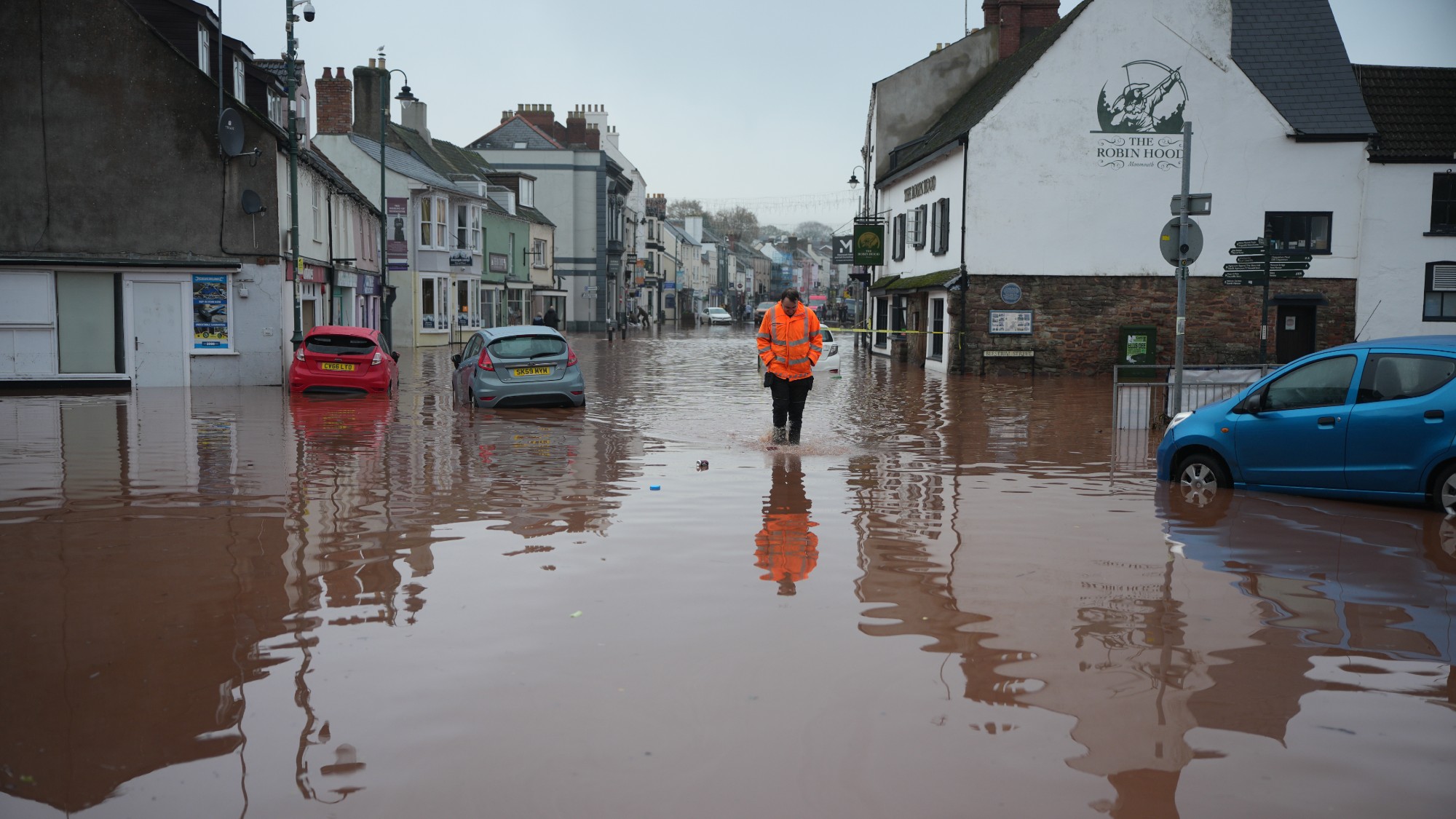Germany decommissions 3 of its 6 remaining nuke plants


A free daily email with the biggest news stories of the day – and the best features from TheWeek.com
You are now subscribed
Your newsletter sign-up was successful
Germany powered down three of its six remaining nuclear power plants Saturday, making good on a government pledge to denuclearize after the 2011 meltdown of Japan's Fukushima reactor, Reuters reported.
The other three plants will be deactivated by the end of 2022. The six plants' combined output amounted to around 12 percent of the electricity produced in Germany in 2021. Coal and gas produce around 43 percent with most of the remainder coming from renewables like wind and solar.
Supporters of the shutdown see it is a necessary step in Germany's planned transition to renewable energy. Critics argue that, without nuclear, the country will burn increasing amounts of fossil fuels and have a less reliable power grid. A post-nuclear Germany would also be forced to rely more on Russia for the natural gas it exports, a dangerous vulnerability at a time when Russia's bellicose behavior in Eastern Europe has driven tensions with NATO — of which Germany is a member — to the breaking point.
The Week
Escape your echo chamber. Get the facts behind the news, plus analysis from multiple perspectives.

Sign up for The Week's Free Newsletters
From our morning news briefing to a weekly Good News Newsletter, get the best of The Week delivered directly to your inbox.
From our morning news briefing to a weekly Good News Newsletter, get the best of The Week delivered directly to your inbox.
An editorial in The Washington Post compared Germany unfavorably with neighboring France, writing that "French President Emmanuel Macron is moving in the opposite direction, announcing plans for new nuclear reactors. France relies more on nuclear power than any other nation, a major reason the country has about half the per capita greenhouse emissions Germany does."
Independent energy journalist Angelica Oung concurred. "It makes no sense from a climate perspective to shut down nuclear plants before their time is up. The cost both financial and in terms of carbon emissions is incurred in construction. Even worse is Germany's timing. To do this in the middle of a continent-wide energy crunch is all but guaranteed to drive up prices for consumers and increase [the use of] fossil fuels," she told The Week.
Nuclear energy suffered another defeat in Taiwan last month when voters rejected a referendum that would have allowed work to resume on the island nation's creatively named Fourth Nuclear Power Plant.
A free daily email with the biggest news stories of the day – and the best features from TheWeek.com
Grayson Quay was the weekend editor at TheWeek.com. His writing has also been published in National Review, the Pittsburgh Post-Gazette, Modern Age, The American Conservative, The Spectator World, and other outlets. Grayson earned his M.A. from Georgetown University in 2019.
-
 Political cartoons for February 22
Political cartoons for February 22Cartoons Sunday’s political cartoons include Black history month, bloodsuckers, and more
-
 The mystery of flight MH370
The mystery of flight MH370The Explainer In 2014, the passenger plane vanished without trace. Twelve years on, a new operation is under way to find the wreckage of the doomed airliner
-
 5 royally funny cartoons about the former prince Andrew’s arrest
5 royally funny cartoons about the former prince Andrew’s arrestCartoons Artists take on falling from grace, kingly manners, and more
-
 Earth is rapidly approaching a ‘hothouse’ trajectory of warming
Earth is rapidly approaching a ‘hothouse’ trajectory of warmingThe explainer It may become impossible to fix
-
 At least 8 dead in California’s deadliest avalanche
At least 8 dead in California’s deadliest avalancheSpeed Read The avalanche near Lake Tahoe was the deadliest in modern California history and the worst in the US since 1981
-
 The environmental cost of GLP-1s
The environmental cost of GLP-1sThe explainer Producing the drugs is a dirty process
-
 Why scientists want to create self-fertilizing crops
Why scientists want to create self-fertilizing cropsUnder the radar Nutrients without the negatives
-
 ‘Jumping genes’: how polar bears are rewiring their DNA to survive the warming Arctic
‘Jumping genes’: how polar bears are rewiring their DNA to survive the warming ArcticUnder the radar The species is adapting to warmer temperatures
-
 Death toll from Southeast Asia storms tops 1,000
Death toll from Southeast Asia storms tops 1,000speed read Catastrophic floods and landslides have struck Sri Lanka, Indonesia, Thailand and Malaysia
-
 How will climate change affect the UK?
How will climate change affect the UK?The Explainer Met Office projections show the UK getting substantially warmer and wetter – with more extreme weather events
-
 The Southern Ocean is holding in a ‘burp’
The Southern Ocean is holding in a ‘burp’Under the radar The heat from the past can affect the future
